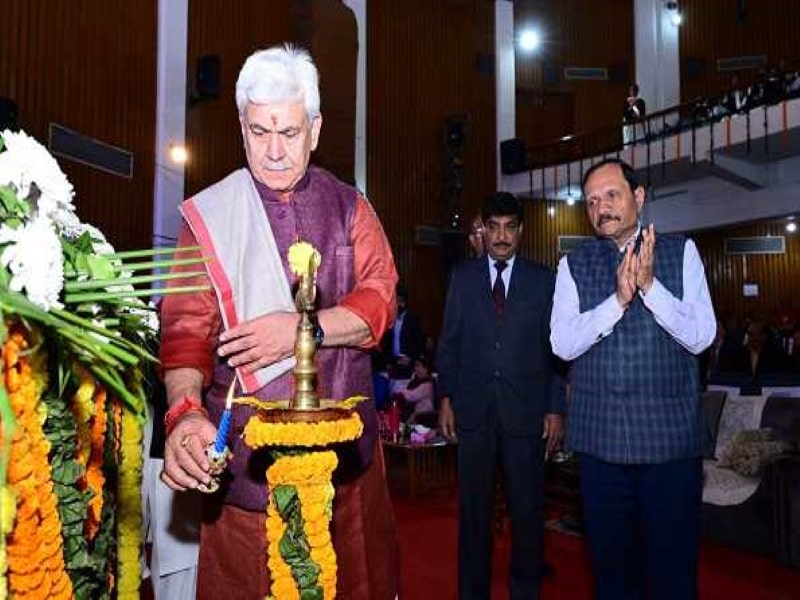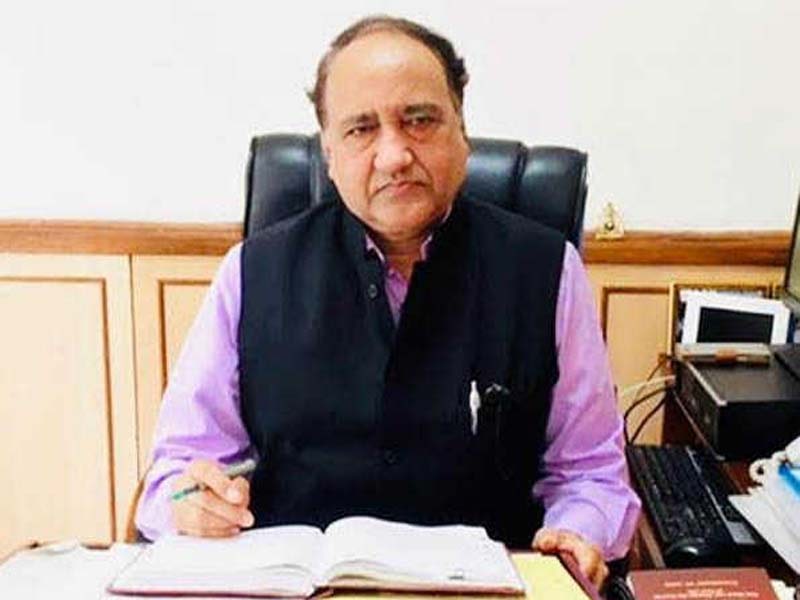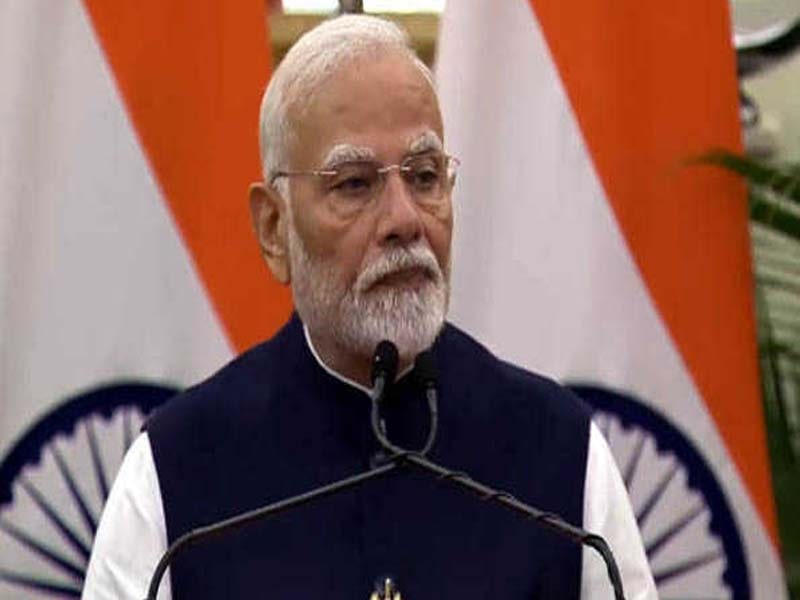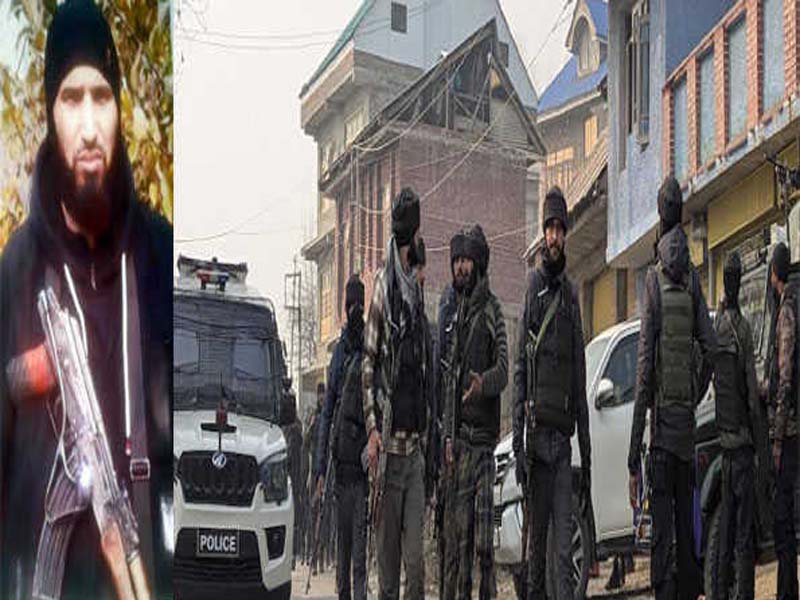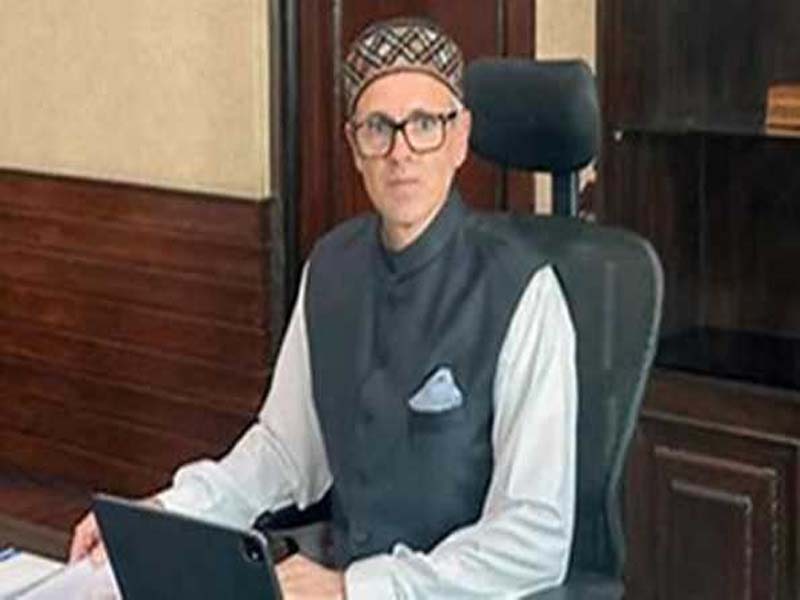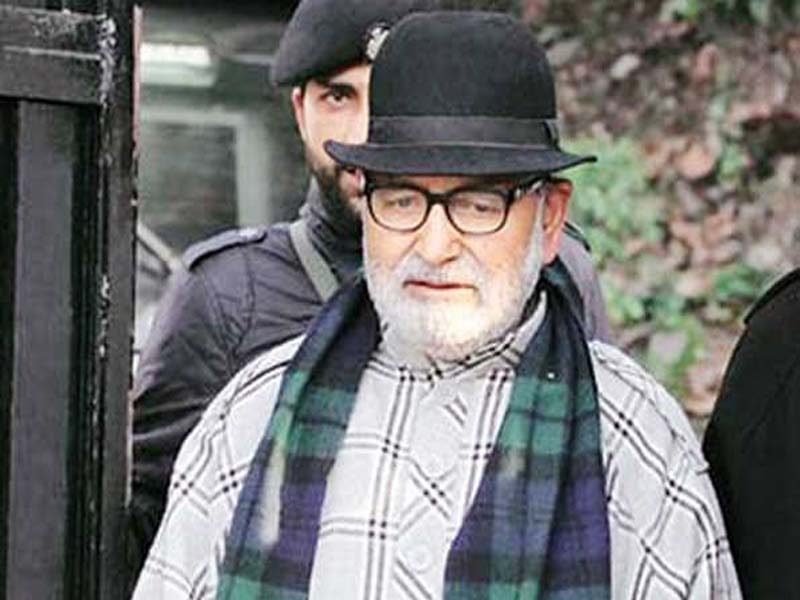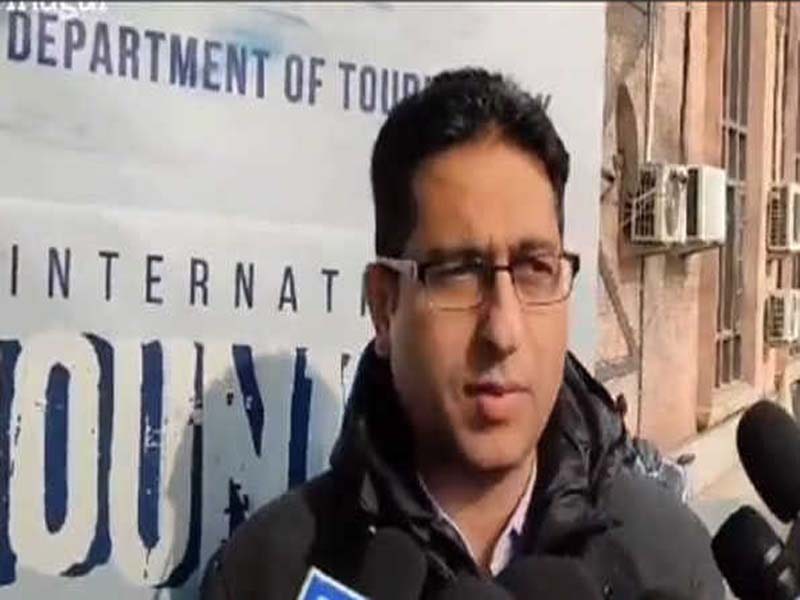LG’s NEP will turn India into a knowledge superpower.
JAMMU, NOV 29 : Manoj Sinha, the lieutenant governor of Jammu and Kashmir, emphasised on Tuesday that the core of the national education policy, which aims to develop future leaders and innovators, is inter-disciplinary curriculum and multidisciplinary education.
Speaking at an event held at Padma Shri Padma Sachdev Government PG College for Women in Gandhi Nagar to announce the key initiatives of the National Education Policy-2020, Sinha claimed that the pace of socioeconomic change has accelerated due to environmental, scientific, and technological change as well as globalisation.
The Lt. Governor stated that “problem-based learning will familiarise children with real-world circumstances and enhance thinking and creativity abilities.”
A number of digital initiatives have been introduced to bring transparency and accountability to the department in order to support the successful implementation of NEP-2020 in a paperless mode, including the e-Samarth portal, feedback portal, Biometric attendance portal, Sparrow portal, and Annual Transfer Portal.
“National Education Policy would be a key factor in transforming India into a superpower in the field of knowledge. We need to evaluate our national and international ranking and implement corrective steps because public educational institutions are similarly equipped to private ones in terms of tools and resources.
He continued by saying that the recommendations put into practise in the UG Program of all colleges starting in the 2022–2023 academic year will close the gap between theoretical knowledge and practical skills, offer resources and a variety of options for research, and give students more flexibility in finishing degree programmes.
The Lt. Governor emphasised the changes being made in the educational field under Prime Minister Narendra Modi’s direction.
The future of higher education and learning, according to him, “will be more dynamic, adaptable, and personalised like a liquid learning model platform to seamlessly blend the ideas from different disciplines to prepare students for varied & comprehensive knowledge in rapidly changing world,” he said.
The Lt. Governor also emphasised the need for teachers and students to take advantage of scientific and humanities advancements by restructuring classrooms and putting a strong emphasis on research and values that will equip students with knowledge and skills that are applicable to both the present and the future.
“National Education Policy encourages interdisciplinary cooperation to support creativity and innovation. Future multidisciplinary thinkers will be the ones driving sustainable technological advancements, he continued.
The Lt. Governor placed emphasis on encouraging kids to develop future-focused skills, advancing research, and fostering collaboration between university and business.
Under the National Skills Qualification Framework, degree colleges are encouraged to begin the skill development courses that have been identified by the skill sector council (NSQF).
These courses will be offered in collaboration with business, with 12 credits being taught by the college as professional knowledge and 18 credits being obtained from business as professional training.
The skill development classes will first be offered at 50 colleges, according to the Lt. Governor.
In order to encourage the startup ecosystem in higher education, the Lt. Governor asked the instructors and professors.
He also encouraged students to develop their critical thinking skills.
Speaking at the event, Rajeev Rai Bhatnagar, the Lt. Governor’s advisor, emphasised the importance of making efficient use of all available resources to train the next generation of leaders.
Dr. Arun Kumar Mehta, the Chief Secretary, tasked educational institutions with the responsibility of empowering students via education and equipping them with advanced learning and skills training so they can adapt to the constantly changing demands of the job market.
He also urged universities to continually update their course offerings. From kindergarten through the provision of PhDs, J&K will be among the leaders in implementing NEP 2020, he stressed.
The NEP-2020 implementation efforts taken by the Higher Education department were emphasised by Rohit Kansal, Principal Secretary, Higher Education Department.
He also discussed the salient aspects of the current projects.
At the event, agreements were also signed between the higher education departments of Jammu and Kashmir, SKUAST-Jammu, SKUAST-Kashmir, Jammu University, and Kashmir University for the sharing of research-based knowledge, life skills courses, and college mentoring, respectively, in order to better prepare students.
A book titled “Implementing National Education Policy” was published by the Lt. Governor. The Lt Governor gave congratulations to the heads of various colleges for receiving NAAC accreditation.
Impressive cultural performances were presented on the occasion, showcasing Jammu and Kashmir’s rich culture and traditions.(PHN)

